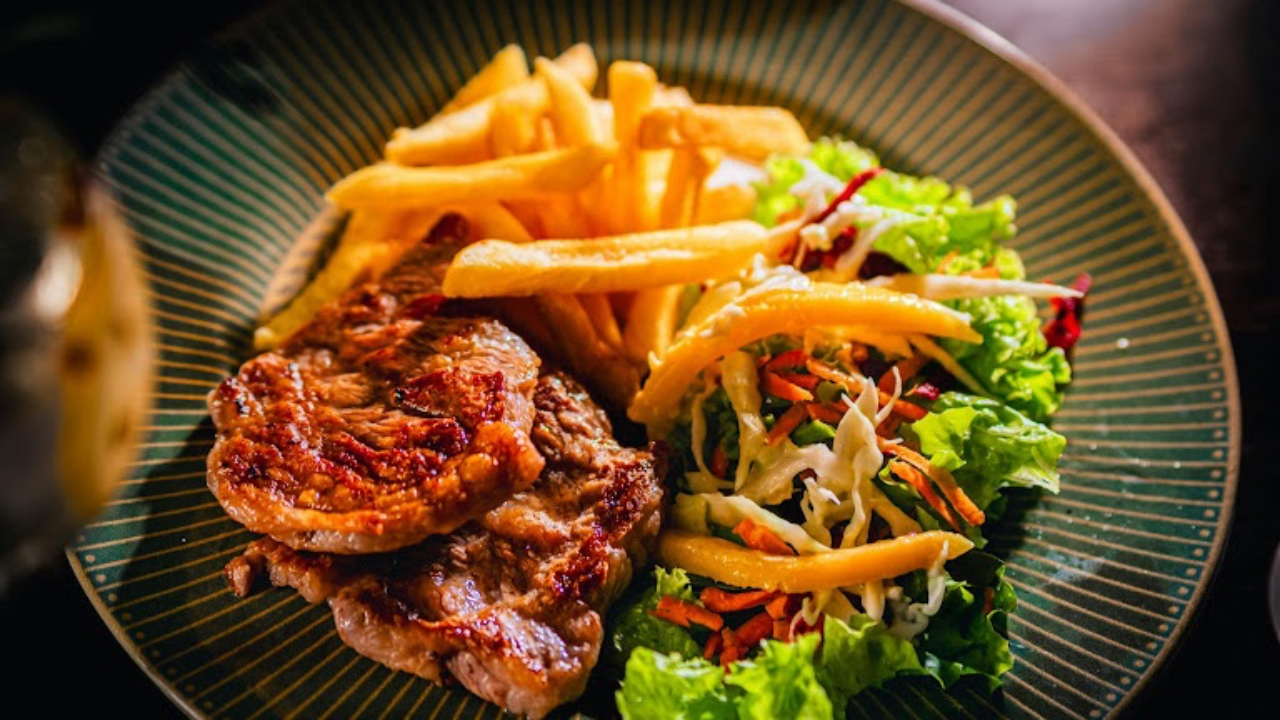Conquer Any Meal for Blood Sugar Control

Imagine sitting down to a delicious, hearty meal – maybe a big family dinner, a celebratory feast, or even some amazing international cuisine
For many, it's pure enjoyment. But if one is living with diabetes, that same meal can feel like a puzzle, a challenge to keep blood sugars steady. "Will this send numbers soaring?" "How much insulin is needed?" These are common thoughts, and honestly, they can take some of the joy out of eating.
The Deceptive Dance of Protein and Fat
When thinking about managing diabetes and food, carbs usually steal the spotlight, right? Individuals are taught to count them, dose for them, and watch their immediate impact. And yes, carbs are super important because they turn into sugar in the bloodstream quickly. Faced with a Bosnian BBQ on a trip to Montenegro, a plate piled high with grilled meats, fries, spices, and veggies seemed like an easy blood sugar win. But as a Type 1 Diabetic, dietitian, and educator, these complex meals could sneak up on blood sugar hours later if not carefully managed.
The real "detective work" with a meal like this comes from understanding how protein and fat play a long game with blood sugar. The plate had over a pound and a half of meat, plus spicy cheese and oil on the fries and veggies. That's a ton of protein and fat. Unlike carbs, protein and fat don't cause an immediate spike. Instead, they slow down digestion, which means the carbs consumed, and even some of the protein that eventually converts to glucose, will hit the bloodstream much, much later – sometimes four to six hours after the meal! This delayed rise can be a real headache, leading to unexpected high blood sugars long after the meal is finished. This is a crucial concept that a skilled diabetes dietitian can help one understand and manage.
A Strategic Approach for Stable Blood Sugars
So, how to tackle that delicious, yet tricky, Bosnian BBQ? The strategy, honed over years and backed by professional training as a T1D dietitian, is all about timing and understanding.
- Carbs First: Starts by accurately estimating the carbohydrates. For this meal, it was primarily the fries. The bolused (took an insulin dose) for those carbs right before starting to eat, giving the body a head start on processing them. This is a common strategy a Type 1 diabetes dietitian would recommend to manage immediate post-meal spikes.
- Anticipating the Delay: Knowing the massive amounts of protein and fat on the plate, a significant blood sugar rise was coming hours later. This is where many people, especially those with Type 2 diabetes, get tripped up. They might dose for the carbs, see good initial numbers, and then wonder why they're high later. A type 2 diabetes dietitian often emphasizes this delayed impact, as insulin resistance can make it even more pronounced.
- The Protein and Fat Plan: For meals heavy in protein and fat, plan a "dual wave" or extended bolus. This means delivering a portion of their insulin upfront for the carbs, and then spreading out the remaining insulin over several hours to cover the delayed glucose from the protein and fat. This prevents those frustrating late-night or early-morning highs. A diabetes educator can guide individuals on how to implement such advanced strategies with their specific insulin regimen or medication.
Why This Matters
Whether one is managing Type 1 diabetes or Type 2 diabetes, understanding how different macronutrients affect blood sugar is key to living an unrestricted life. It's not about avoiding delicious meals; it's about having the knowledge and tools to enjoy them confidently.
Many people feel frustrated when their blood sugars don't behave as expected, even when they're "doing everything right." Often, it's because the advice they've received is oversimplified and doesn't account for the nuances of complex meals. This is where working with a diabetes dietitian or Diabetes Educator becomes invaluable. They can help individuals:
- Decode Your Meals: Learn to identify all the macronutrients and their unique impact on blood sugar.
- Personalize Your Strategy: Develop a plan that works for your body, your medications, and your lifestyle. There's no one-size-fits-all in diabetes management.
- Build Confidence: Gain the peace of mind to enjoy a wider variety of foods without constant worry about their numbers.
Remember, pain (or unexpected high blood sugars) is a signal for change. Be curious about your body, without judgment. If a current care team isn't addressing the delayed impact of protein and fat, or if one is struggling to stay in range after complex meals, it might be time to seek specialized guidance. A Type 1 diabetes dietitian or type 2 diabetes dietitian can provide the concrete plan needed to truly conquer any meal and keep blood sugars steady, allowing one to live a full, unrestricted life.
If you're looking for delicious and easy recipes that won't spike your blood sugar, we've got you covered.This collection of tasty and diabetic-friendly meals is just what you need.

